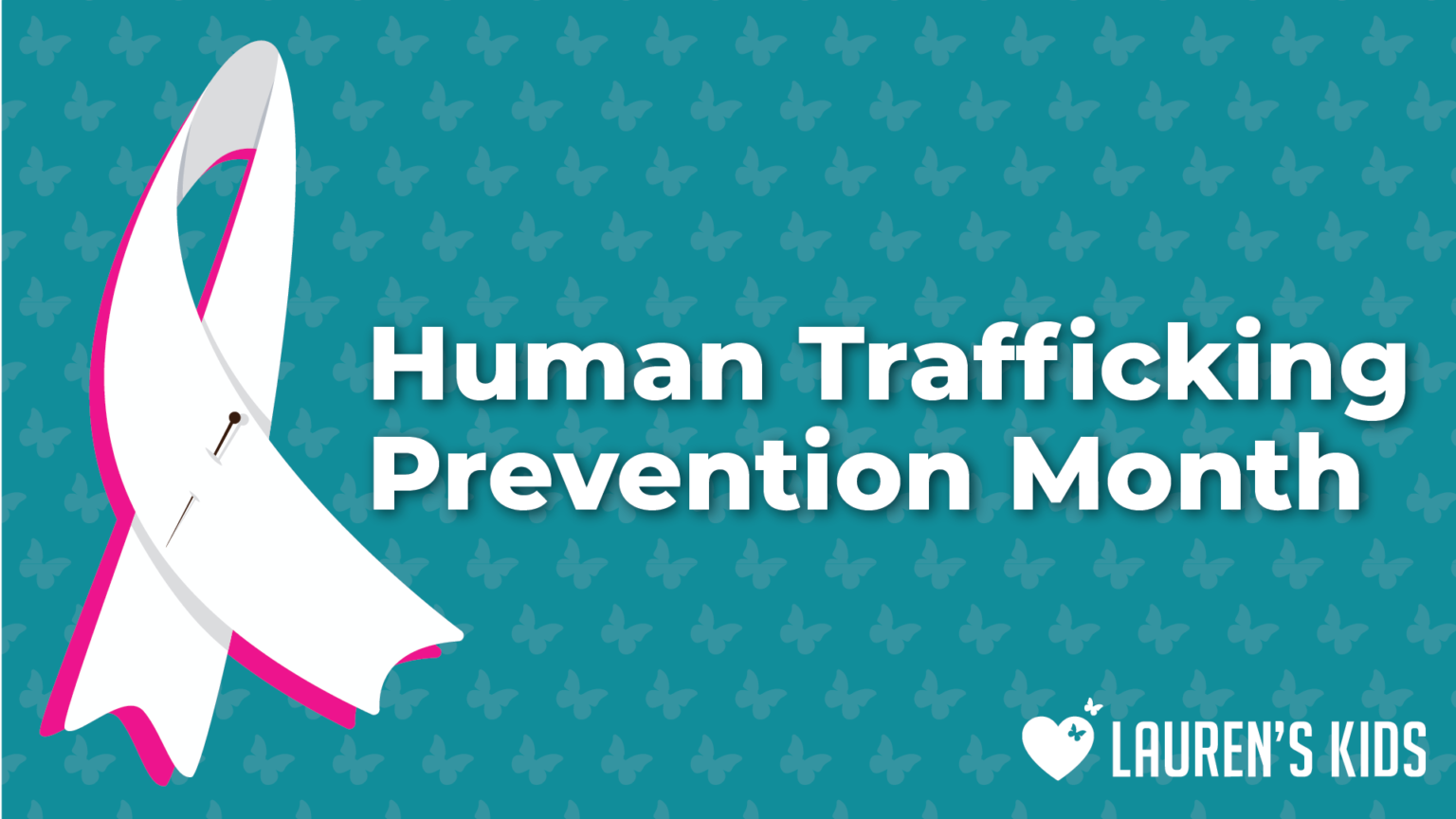January is National Human Trafficking Prevention Month, an important time to educate ourselves about human trafficking and how we can become a part of the fight to end it. While many may believe human trafficking happens somewhere on the other side of the world, trafficking can and does occur everywhere – even right in our own communities. Florida, where Lauren’s Kids is based, is the third largest hub for human trafficking in the United States. For this reason, it is crucial we know the signs of human trafficking and how to A.C.T. when we spot them.
Children and teens make up nearly half of all victims of trafficking. The best way for traffickers to find vulnerable children or teens is to go where they hang out – both in-person and online (on social media sites, popular games, etc.). Traffickers know what makes a child or teen more vulnerable and groom children to believe their lies; they look for children and teens who are alone, who respond to attention, who are experiencing homelessness, have parents experiencing drug addiction, or who need money.
A child or teen is very rarely snatched and sold into slavery, and most victims are lured in by someone they identify with. It is estimated that 71% of victims are recruited by someone they know. Traffickers often use “peer recruiters” to first befriend and then entrap a victim. In other instances, a trafficker him or herself builds a familial or romantic (“Romeo pimp”) relationship and coerces the victim into sexual acts (or other forced labor or service) for profit. Often, traffickers will provide victims with alcohol or drugs, or take nude pictures or videos of the victim; these actions will then be used as means to blackmail and control. Coercion can also occur through the use of money, addictive substances, or threats like exposure or violence.
Parents should be aware of their children’s whereabouts both in person and online, and have regular check-ins with their children and teens, making sure lines of communication are open and safety rules are adhered to. Kids should know that if they ever feel unsafe or uncomfortable they can come to you for guidance and support, no matter what, and that you will help them – regardless of the circumstances.
The prevalence of social media makes it even easier for a trafficker to groom or “recruit” an individual behind the veil of a screen. Just last month, a young woman recruited six underaged girls over Snapchat for an older man. The man and his accomplice then provided the vulnerable girls with alcohol, vaping cartridges, food, smartphones, high-end purses, and hotel rooms.

